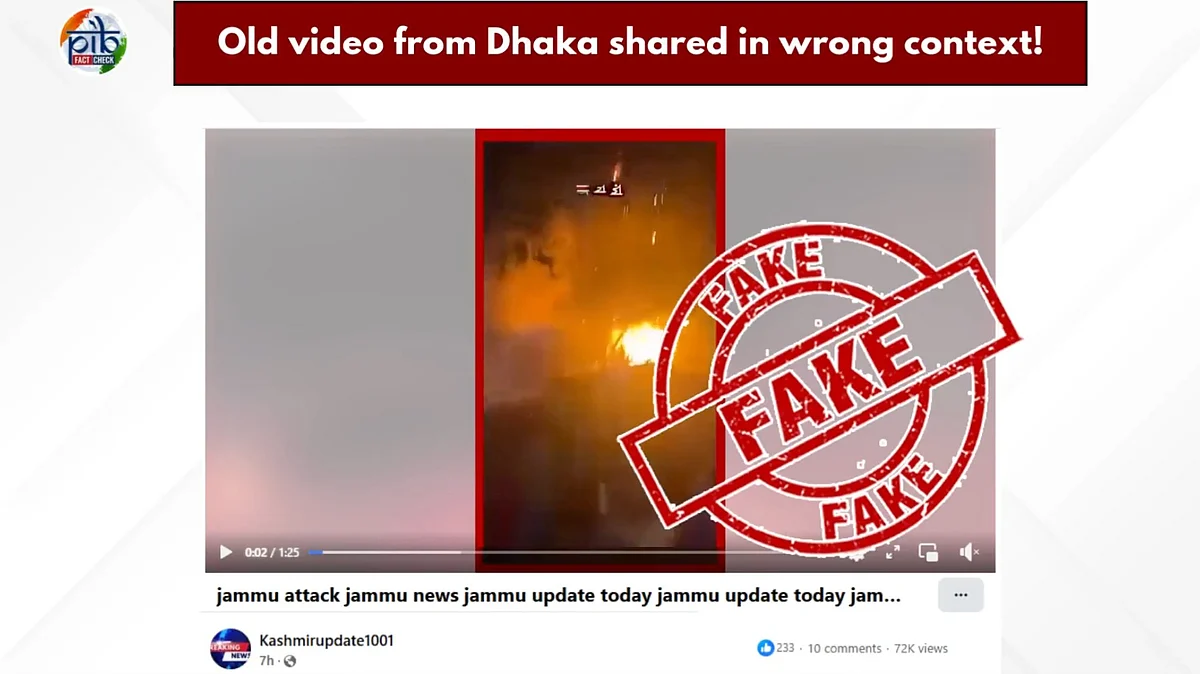Can bigger fines stop spread of fake news? Parliamentary panel thinks so
Most expressed concerns around the amplification of disinformation through algorithmic biases, which leads to the virality of fake news

Describing fake news as a danger to public order and the democratic process, a parliamentary committee has advised amending criminal penalties, increasing fines and establishing clear lines of responsibility to address the problem.
In the draft report adopted on 9 September, Tuesday, the Standing Committee on Communications and Information Technology also called for every print, digital and electronic media organisation to have a mandatory fact-checking unit and internal ombudsman. The recommendations advocate a collaborative effort involving government agencies, private groups and independent fact-checkers to effectively combat fake news.
Headed by BJP MP Nishikant Dubey, the panel unanimously adopted the report, indicating agreement across party lines on the need for stricter measures against fake news.
“The Committee desire the ministry of information and broadcasting (IB) to ensure that a fact-checking mechanism and internal ombudsman should be made mandatory in all print, digital and electronic media organisations of the country,” one recommendation stated.
The draft, which is also directed to the electronics and information technology (IT) ministry, aims to assign accountability to editors and content heads for editorial oversight, owners and publishers for institutional lapses, and intermediaries and digital platforms for spreading misinformation.
It additionally suggests revising existing laws to punish the publication and broadcast of false content more stringently.
The committee believes raising the amount of fines could act as an effective deterrent for creators and publishers of fake news, for example. At the same time, the report stressed that the changes should “involve and emerge from a consensus-building exercise among media bodies and relevant stake-holders”.
The panel took note of the lack of clarity in defining misinformation and fake news as well, and suggested the ministry include stronger definitions in the regulatory frameworks for all forms of media. It advised that such regulation should, however, be balanced in the interests of protecting freedom of speech and expression and other constitutional rights.
Pointing to fake news at the international level, the committee recommended collaboration at both the national and global levels. It suggested following international models, such as France’s legislation on election-related misinformation, and forming a specialised inter-ministerial task force with legal experts to manage cross-border disinformation.
Emphasising the challenge of AI-generated misinformation as well, the committee supported leveraging artificial intelligence tools with human oversight to track and penalise those responsible.
“The committee recommends for inter-ministerial coordination for exploring the feasibility of licensing requirements for AI content creators and mandatory labelling of AI-generated videos and content, and apprise them about the action taken in the matter accordingly,” the report said.
Other recommendations include a time-bound grievance resolution framework, digital tracking of complaints and media literacy campaigns. The committee also asked for updates on efforts to introduce media studies in school curricula and recommended teacher and librarian training in line with these goals.
Several stakeholders raised concerns about the “safe harbour” provisions under Section 79 of the IT Act, 2000, which shield digital platforms from liability for user-generated content.
Yet, the courts have in the past expressed concern over the unfettered power granted to government authorities to ‘punish misinformation’ or clamp down on what is viewed as disinformation, given the paucity of clear, unambiguous guidelines that are not left open to subjective interpretation.
The new report also pointed out that many social media platforms' algorithms promote sensational — and often false — content. It stated, “During examination of the subject, most of the stakeholders expressed their concern related to amplification of fake news through algorithmic biases because this vicious cycle often leads to virality of fake news,” and called for coordinated action by the IB ministry.
The final draft supports tighter fines and more severe punishments for repeat offenders, establishment of an independent regulator and the use of AI and other technologies to check the spread of misinformation.
It also concludes that unchecked fake news poses serious risks to public order, democracy, personal reputations, financial markets and the credibility of the media in India.
This comes against the backdrop of the ongoing unrest Nepal triggered by the social media ban across 76 platforms — which young people feared was a clampdown on their rights of free speech and well as a denial of access to education and employment — and with multiple nations questioning the regulation of social media platforms for disinformation and misinformation, a downside of citizen journalism and seen as a bigger challenge than disinformation form organised media internationally.
After the 7 October 2023 Hamas attacks, for instance, the EU argued the Elon Musk-run X was the biggest source of disinformation (though the first warning to Twitter came in September), and in recent times, a ‘glitch’ in Grok produced some very interesting gaffes. Facebook’s and Google’s removal of human staff who checked disinformation and violation of community standards in the interests of ‘efficiency’ and free speech also made headlines over the last few years.
Closer to home, just last year, the World Economic Forum produced a report that indicted India of leading the world in misinformation and fake news. So while this is a tough regulatory nut to crack, the concern is neither overblown, nor premature.
The WEF’s 2025 report also offered some suggestions on containing and solving the problem. We would hope our legislators have made themselves conversant with those as well. One of those was ‘encouraging independent research on disinformation, along with stronger laws to protect independent journalists‘. But mandatory fact-checker units might actually make it more challenging for smaller media houses and independent professionals to thrive.
Follow us on: Facebook, Twitter, Google News, Instagram
Join our official telegram channel (@nationalherald) and stay updated with the latest headlines
